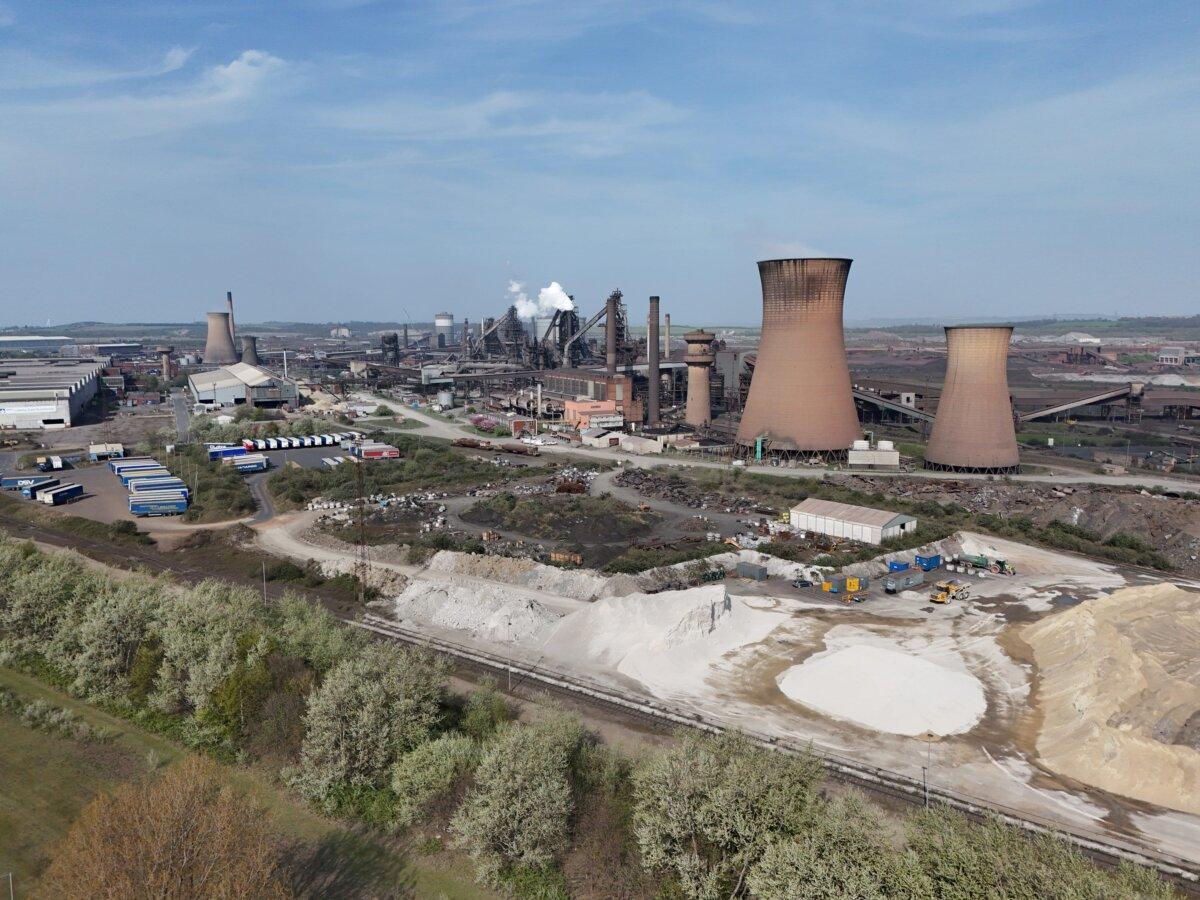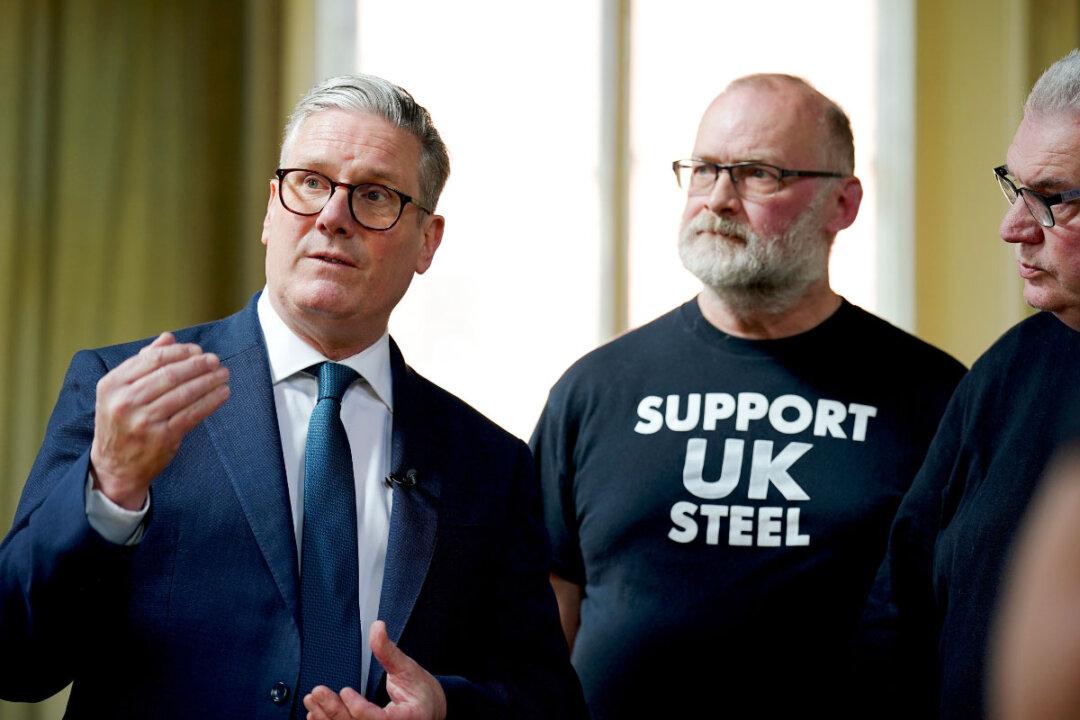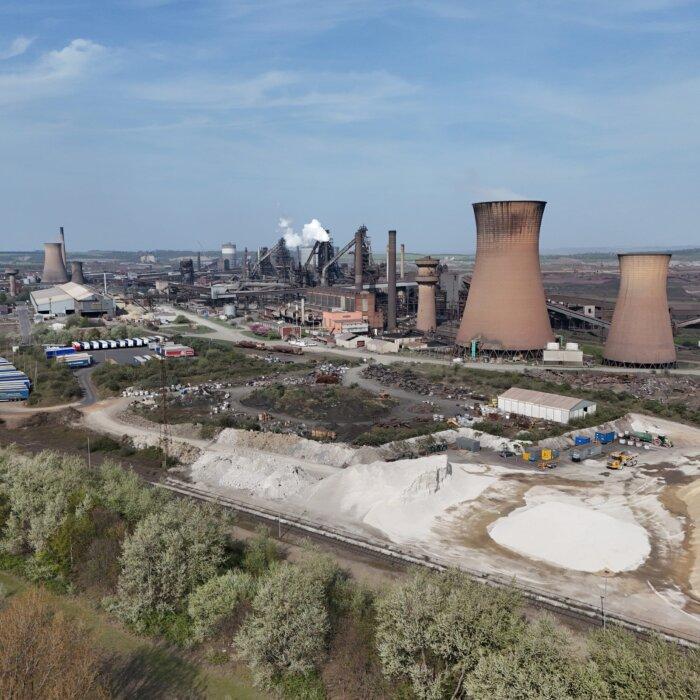The government has secured the raw materials needed to keep the blast furnaces going at the British Steel plant in Scunthorpe.
The Department for Business and Trade (DBT) said on Tuesday that materials which arrived in two ships from the United States will be unloaded from the dock at Immingham port in North Lincolnshire and transported to the steelworks some 20 miles away.
There are enough materials to keep the furnaces running “for the coming weeks,” the department said.
A third ship containing more coking coal is on its way from Australia. The department said this shipment was subject to a legal dispute between British Steel and Jingye over the weekend, which has since been resolved. These materials have been paid for out of the DBT budget.
The DBT added that officials were working “at pace” to ensure that there is a steady pipeline of materials—iron ore, coke, and limestone—to keep the furnaces burning.
Blast furnaces are designed to operate continuously, meaning that a steady supply of raw materials must always be at hand. If the furnaces cool down, their interiors and brick lining could be damaged. Solidified iron and slag will also need to be removed mechanically, which could also damage the furnaces.
Saving British Steel
Over the weekend, the government passed emergency legislation to take control of the steelworks from Chinese owner Jingye, to ensure the furnaces continue to run and workers are paid.Talks between Jingye and the government had broken down. Reynolds earlier said that Jingye stopped ordering raw materials and had begun selling off existing supplies, which sparked concerns the steel mill could close within days.
The secretary of state is set to travel to Immingham docks on Tuesday, following other visits to the steel workers’ community by Prime Minister Sir Keir Starmer and Deputy Prime Minister Angela Rayner.
Reynolds said in a statement issued from his department: “We will always act in the interest of working people and UK industry. Thanks to the work of those at British Steel, and in my department, we have moved decisively to secure the raw materials we need to help save British Steel.
“Our industries depend on UK steel and – thanks to our Plan for Change – demand is set to shoot up: helping build the 1.5 million homes, railways, schools and hospitals we need to usher in a decade of national renewal.”
‘I Need My RSJs’
Starmer wrote on social media platform X on Tuesday: “My government has secured the raw materials to save British Steel.“We acted to secure Britain’s future. A Britain rebuilt with British steel, in the national interest.
“Helping to build the homes, railways, schools and hospitals we need to usher in a decade of national renewal.”

On Monday, Rayner visited the steelworks, where she joked that she had come for the materials needed to build the 1.5 million homes the government has pledged will be constructed.
She was shown a view of the blast furnaces after meeting with workers, union officials, and the new executive team.
The deputy prime minister thanked those at the mill, adding: “We’ve got to the point we have now where we’ve secured the plant and we’ve got raw material coming and therefore the furnaces are going to keep firing up. Well done to everyone with your help for that.”
Rayner then discussed the importance of steelmaking to “our national security” and “for my 1.5 million homes as well.”
She joked, “Never mind any other part of government, I’m here because I need my RSJs [structural steel beams] and everything else for my houses.”

Possible State Ownership
The Steel Industry (Special Measures) Act gives the government special powers to direct the company’s board, ensure workers get paid, and order the raw materials needed to keep the blast furnaces running.The government is currently overseeing the short term prospects of the steelworks but has not ruled out taking it completely under public ownership if a private investor is not found.
“However, our aspirations for British Steel remain a co-investment agreement with a private sector partner to secure a long-term transformation.”







